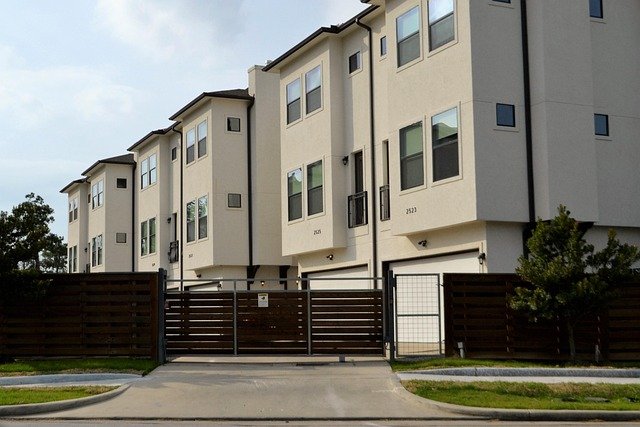Nursing Home Costs, Care Options, and Funding Guide for Elder Care in UK 2025
As the UK population ages, understanding nursing home care options and their associated costs becomes increasingly important for families planning elder care. This comprehensive guide explores the landscape of nursing home care in the UK for 2025, covering costs, care options, eligibility criteria, and funding support available to those in need of long-term care services.

What are the current nursing home costs in the UK?
Nursing home costs in the UK can vary significantly depending on factors such as location, level of care required, and the specific facilities offered. As of 2025, the average weekly cost for a nursing home place in the UK ranges from £800 to £1,500. However, in some areas, particularly in London and the South East, costs can exceed £2,000 per week.
It’s important to note that these figures represent an average, and actual costs can be higher or lower based on individual circumstances. Factors that can influence pricing include:
-
Type of room (shared or private)
-
Specialised care needs (e.g., dementia care)
-
Additional services and amenities offered by the home
What care options are available in nursing homes for elder care?
Nursing homes in the UK offer a range of care options to meet the diverse needs of elderly residents. These typically include:
-
Residential Care: For those who can no longer live independently but don’t require constant medical attention.
-
Nursing Care: Provides 24-hour medical supervision for residents with complex health needs.
-
Dementia Care: Specialised care for individuals with Alzheimer’s or other forms of dementia.
-
Respite Care: Short-term care to provide a break for regular caregivers.
-
Palliative Care: Focused on providing comfort and support for those nearing the end of life.
Each of these options comes with different levels of support and, consequently, different cost implications. It’s crucial to assess the specific needs of the individual to determine the most appropriate care option.
What is the eligibility criteria for nursing home support in the UK?
Eligibility for nursing home support in the UK is primarily determined through a needs assessment conducted by the local council’s social services department. This assessment evaluates:
-
Physical health and mobility
-
Mental health and cognitive function
-
Ability to perform daily living activities
-
Current living arrangements and support network
If the assessment concludes that a nursing home is the best option, the individual will then undergo a financial assessment to determine how much they may need to contribute towards their care costs.
Key eligibility factors include:
-
Having care needs that cannot be met in the community
-
Possessing assets below the threshold for full local authority funding (£23,250 in England and Northern Ireland, £28,750 in Scotland, and £50,000 in Wales as of 2025)
It’s worth noting that these thresholds and criteria can change, so it’s advisable to check with local authorities for the most up-to-date information.
How can elder care in UK nursing homes be funded?
Funding for nursing home care in the UK can come from various sources:
-
Self-funding: If an individual’s assets exceed the local authority threshold, they may need to pay for their care privately.
-
Local Authority Funding: For those with assets below the threshold, the local council may cover some or all of the care costs.
-
NHS Continuing Healthcare: Fully-funded care for those with primary health needs, assessed on a case-by-case basis.
-
Deferred Payment Agreements: Allows individuals to use the value of their home to pay for care costs without selling it immediately.
-
Benefits: Certain benefits, such as Attendance Allowance, can help cover care costs.
-
NHS-funded Nursing Care: A contribution towards nursing care costs for those in a care home with nursing.
| Funding Option | Eligibility | Coverage |
|---|---|---|
| Self-funding | Assets above £23,250 (England) | Full cost of care |
| Local Authority | Assets below £23,250 (England) | Partial or full cost, depending on assessment |
| NHS Continuing Healthcare | Primary health needs | Full cost of care |
| Deferred Payment Agreements | Own a property | Care costs secured against property value |
| Benefits (e.g., Attendance Allowance) | Based on care needs | Contribution towards care costs |
| NHS-funded Nursing Care | In a nursing home | Contribution towards nursing care costs |
Prices, rates, or cost estimates mentioned in this article are based on the latest available information but may change over time. Independent research is advised before making financial decisions.
What factors should be considered when choosing a nursing home for elder care in the UK?
When selecting a nursing home for elder care in the UK, several key factors should be taken into account:
-
Care Quality Commission (CQC) ratings: Check the home’s official rating from the independent regulator.
-
Location: Consider proximity to family and friends for regular visits.
-
Specialised care offerings: Ensure the home can meet specific health needs, such as dementia care.
-
Staff qualifications and ratios: Look into the training of staff and the number of carers per resident.
-
Facilities and activities: Evaluate the living conditions and opportunities for social engagement.
-
Nutrition and meal options: Assess the quality and variety of food provided.
-
Visiting policies: Understand the rules around visitation and family involvement.
-
Cost transparency: Ensure all potential charges are clearly explained upfront.
By carefully considering these factors, families can make informed decisions about the most suitable nursing home for their loved ones’ needs and preferences.
In conclusion, navigating the world of nursing home care in the UK requires careful consideration of costs, care options, eligibility criteria, and funding sources. While the process can be complex, understanding these key aspects can help families make informed decisions about elder care, ensuring their loved ones receive the support and care they need in their later years.
This article is for informational purposes only and should not be considered medical advice. Please consult a qualified healthcare professional for personalized guidance and treatment.




